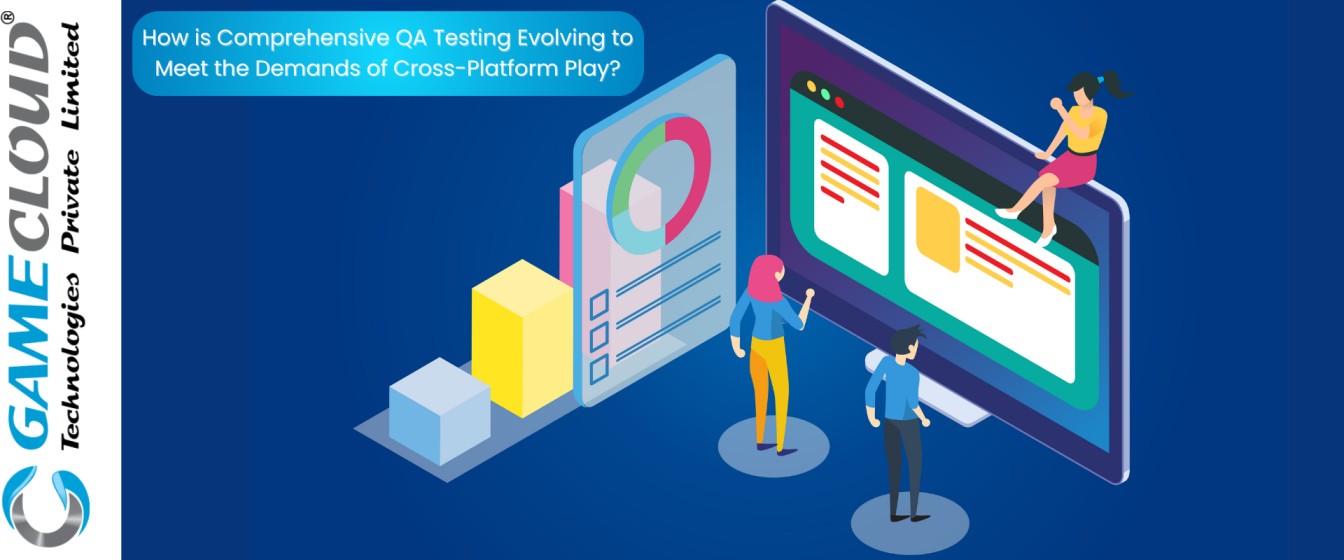
The rise of cross-platform play has revolutionized the gaming industry, allowing players from different platforms to compete and collaborate seamlessly. This trend has gained significant momentum, with nearly 63% of gamers in the United States engaging in cross-platform play, underscoring its growing popularity. The ability to connect players across consoles, PCs, and even mobile devices has expanded gaming communities, reduced matchmaking times, and enriched the overall gaming experience.
However, with this advancement comes the challenge of ensuring a consistent and smooth experience across diverse platforms. This is where comprehensive QA testing plays a crucial role. QA testing is vital for identifying and resolving platform-specific issues, ensuring that games run smoothly across different hardware configurations and operating systems. As cross-platform play continues to evolve, QA testing has also had to adapt, incorporating new strategies and technologies to meet the complex demands of this interconnected gaming environment.
The Challenges of Cross-Platform Play in QA Testing
Cross-platform play introduces significant technical complexities for QA testing, as it involves ensuring that a game performs consistently across various hardware, software ecosystems, and input methods. Each platform—whether it’s a PC, console, or mobile device—has unique specifications, from processing power to graphics rendering capabilities. This diversity requires extensive compatibility testing to ensure that the game functions smoothly on all platforms.
One of the primary challenges is maintaining consistency in performance, graphics, and user experience. For instance, a game might run at different frame rates on a high-end gaming PC compared to a mobile device, leading to potential discrepancies in gameplay quality. Additionally, cross-platform play can introduce platform-specific bugs, such as controller input issues on consoles or resolution problems on mobile devices, which can disrupt the gaming experience. Identifying and resolving these issues is crucial to delivering a seamless cross-platform experience.
Innovations and Strategies in QA Testing for Cross-Platform Play
The evolving demands of cross-platform play have led to the adoption of advanced tools and technologies in QA testing. Automated testing and AI have become pivotal in managing the scale and complexity of testing across different platforms. These technologies enable testers to quickly identify bugs and performance issues, streamlining the testing process. AI-driven testing tools can simulate various environments, ensuring that games perform optimally on all devices.
Early testing and continuous integration/continuous deployment (CI/CD) are now integral to the QA process. By incorporating testing from the initial stages of development, teams can detect and resolve issues early, reducing the risk of major problems later. CI/CD pipelines allow for frequent updates and testing cycles, ensuring that any new changes are compatible across all platforms.
Collaboration between development and QA teams is also crucial. By working closely together, they can ensure that games are not only functional but also offer a consistent user experience across different platforms.
GameCloud: Elevating Game Quality and Monetization Through Expert QA and Global Player Insights
At GameCloud, we go beyond traditional Video Game Testing, QA, and QC to ensure your games are not only running smoothly but are also optimized for monetization and player enjoyment at every stage. Leveraging our years of experience in the gaming industry, we offer tailored solutions for video game developers and publishers worldwide. Our in-house team, along with our global network of gamers and QA professionals, provides valuable feedback, helping to enhance your game’s quality in real-world conditions.
Conclusion
As cross-platform play becomes more prevalent, QA testing is evolving to meet its unique challenges through advanced tools, AI-driven processes, and continuous collaboration between teams. The future of QA testing will focus on maintaining consistency and performance across diverse platforms, ensuring a seamless and enjoyable gaming experience for all players. Comprehensive QA will remain essential in delivering quality and satisfaction in the ever-expanding gaming landscape.
